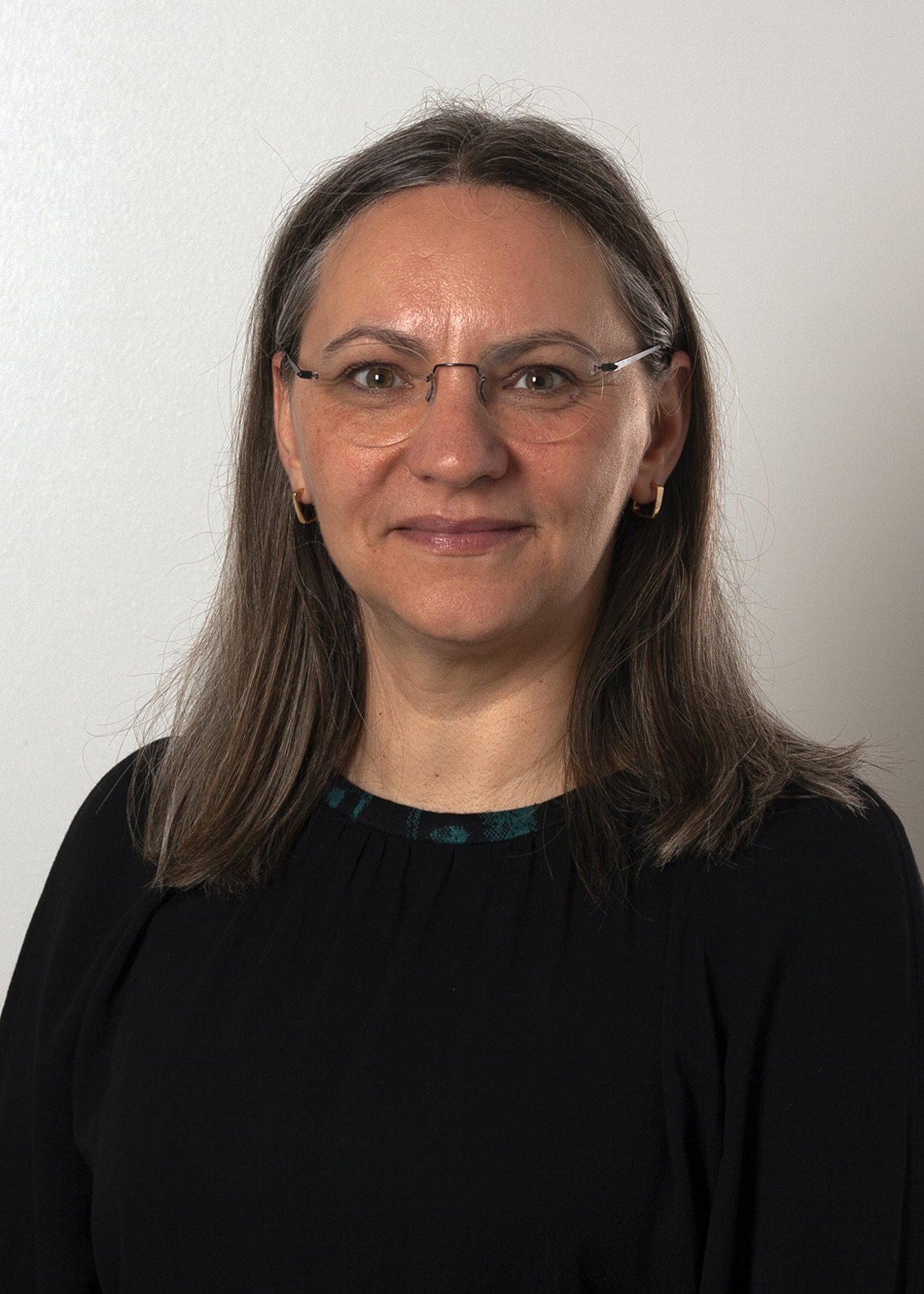Simona Radutoiu has been appointed Professor of Plant Molecular Biology
Simona Radutoiu has been appointed Professor of Plant Molecular Biology at the Department of Molecular Biology and Genetics at Aarhus University as of 1 March 2023. Her research focuses on understanding how plant and bacterial genes contribute to the establishment of beneficial plant-microbe interactions at the root-soil interface and how the acquired knowledge can be used for increasing crop resilience and sustainable production systems.

Based on projections from the Food and Agriculture Organization of the United Nations (FAO), a ca. 70% increase in overall food production is needed to feed 10 billion people. Intensive agriculture appears to be a prerequisite for achieving this goal. However, the same projections show that these high-input production systems will be challenged by the worldwide decrease in water, non-renewable resources and by ecological constraints that constitute the legacy of decades of agriculture intensification. The main challenge lies in achieving economically feasible sustainability in agriculture without compromising crop yields.
Microbes are the primary engines driving the nutrient and energy conversion processes in the environment, and plants have continuously evolved traits that enable them to harness microbial products for their own growth and reproductive benefits. Soil-borne microbes can improve host fitness, by increasing nutrient availability, conferring pathogen resistance, and resilience to abiotic stresses.
Numerous advances in recent years have deepened our understanding of how plants and microbes interact and respond to each other when studied in simple binary associations (one host-one microbe). However, plants grown in natural environments including agricultural systems, are exposed to and interact with complex microbial communities. These complex associations are key determinants of the outcome for plant health and yield, but the principles guiding microbiota assembly and its effect on the host are unknown.
Gene editing technologies provide new possibilities for engineering crops for desired traits, including those for recognition and accommodation of beneficial microbes that would allow plants to self-fertilize. Identifying plant and bacterial genes that are key for beneficial interactions is thus a long-term priority.
Thus, plant and bacterial genetics and molecular biology are at the core of the studies performed Simona Radutoiu’s group. These studies include innovative approaches for plant engineering, large collections of commensal bacteria, and analyses of big data sets retrieved from experimental systems of increasing complexity.
About Simona Radutoiu
Simona Radutoiu has a PhD in Plant physiology from The University of Agronomy, Bucharest, Romania. She started her PhD by studying soybean genes for improved yield, but a 9-month fellowship at the University of Tennessee, US shifted entirely the focus of her studies towards model legume genetics and genetic transformation for understanding root nodule symbiosis. In 2000, Simona obtained a postdoctoral Marie Curie fellowship to study the nfr1 mutant and to clone the gene responsible for the lack of root nodule symbiosis. This mutant was identified in the group of Jens Stougaard, at Aarhus University which she joined in 2001. Simona established her research group in 2007 and since 2011, she holds a tenured associate professor position at the Department of Molecular Biology and Genetics (MBG), Aarhus University.
The research performed during her postdoctoral fellowship led to the identification of the first plant LysM receptor kinases and the characterization of the first and most important step in the establishment of symbiosis between legume plants and nitrogen-fixing bacteria. In the following years, Simona obtained grants from the Danish Research Council enabling the establishment of her own research group that focused on identifying the remaining members of the LysM receptor kinase family in Lotus japonicus and characterising their function.
Simona’s group has been a partner in CARB, a centre of excellence at MBG funded by the Danish National Research Foundation (2007-2017) where she contributed to the understanding of how carbohydrate signals produced by microbes are recognized by plant LysM receptors. This led to the identification of the first exopolysaccharide receptor as well as the characterization of other LysM receptors recognizing signals produced by symbiotic bacteria, symbiotic fungi, or pathogenic oomycetes.
Simona has been a partner in the ENSA program since its inception (2012-2028). ENSA is considered one of the most aspirational international research programs in plant science that aims to engineer nitrogen-fixing symbiosis in non-legumes such as cereals and cassava. ENSA program is led by Cambridge University and is funded by the Bill and Melinda Gates Foundation and Bill and Melinda Gates Agricultural Innovation (Gates AgOne).
In 2010, Simona received funding from the Danish National Research Foundation to study the interaction between plants and commensal, endophytic bacteria. This provided the opportunity for launching a new research field at the department, the plant root microbiota as well as new and prolific collaborations with colleagues from Max-Planck Institute in Cologne, Germany. These studies provided the first view of the root microbiota structure of soil-grown Lotus japonicus plants, which established that root nodule symbiosis is critical for microbiota assembly and that commensals have a host preference.
The resources and expertise gained in Simona’s group in this new field of plant root microbiota enabled the Section of Plant Molecular Biology to engage in the InRoot program (2019-2025) focused on microbial mediated crop resilience, financed by the Novo Nordisk Foundation.
In 2016, Simona received the Adam Kondorosi young investigator award in recognition of her achievements in the field. In 2019 she was elected a member of Academia Europaea and in 2022 a member of EMBO.
More information
Professor Simona Radutoiu - radutoiu@mbg.au.dk
Department of Molecular Biology and Genetics
Aarhus University, Denmark
